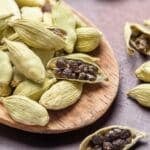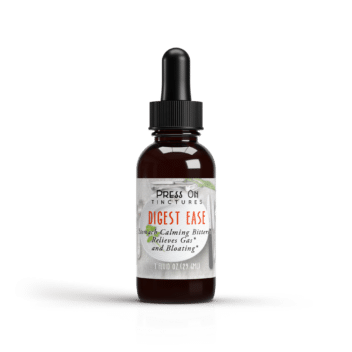
Cardamom in Herbal Medicine
Cardamom in Herbal Medicine
Ancient Beginnings
Cardamom’s storied history begins in the lush rainforests of the Indian subcontinent, where it flourished and was revered as a treasure by ancient civilizations. The Egyptians utilized cardamom in rituals and embalming processes, recognizing its preserving qualities. In Greece and Rome, cardamom was not only a culinary delight but also a symbol of luxury and sophistication, often used in perfumes and incense. Its significance in these cultures highlights the early understanding of cardamom’s diverse applications beyond the kitchen.
The Spice Trade and Global Spread
The spice’s journey from the East to the West was facilitated by the ancient spice trade routes. Indian traders introduced cardamom to European merchants, who were captivated by its exotic aroma and flavor. It quickly became a prized commodity, often exchanged for gold and silver, and found its way into European kitchens and apothecaries. Today, cardamom is cultivated in tropical regions beyond its native land, with Guatemala emerging as the largest producer, testament to its enduring global appeal.
Varieties and Their Characteristics
Cardamom comes in two primary varieties: the vibrant green cardamom (Elettaria cardamomum) and the robust black cardamom (Amomum subulatum). Green cardamom is cherished for its sweet, floral aroma, making it a popular choice in sweet and savory dishes as well as in herbal medicine. Black cardamom, with its bold, smoky undertones, is favored in savory culinary creations, particularly in Indian and Nepalese cuisines. Each type brings a unique set of flavors and potential health benefits, broadening its appeal and versatility.
Cardamom’s Medicinal Properties
Antioxidant Powerhouse
Cardamom is lauded for its impressive antioxidant content, which plays a crucial role in protecting the body from oxidative stress. Antioxidants neutralize free radicals, unstable molecules that can cause cellular damage and contribute to the development of chronic diseases such as cancer and heart disease. Regular consumption of cardamom can enhance the body’s antioxidant defense system, promoting longevity and vitality. Its role in neutralizing harmful agents underscores its importance in preventive health strategies.
Digestive Health Enhancer
For centuries, cardamom has been a trusted ally in promoting digestive health. It aids in the secretion of digestive enzymes, facilitating the efficient breakdown of food and absorption of nutrients. Traditional medicine practitioners have relied on cardamom to treat common digestive issues such as bloating, gas, and indigestion. Its carminative properties help soothe an upset stomach, while its antispasmodic effects can alleviate discomfort associated with gastrointestinal distress. Incorporating cardamom into meals can thus support a healthy and efficient digestive system.
Respiratory System Support
In herbal medicine, cardamom is esteemed for its ability to bolster respiratory health. Its expectorant properties make it an effective remedy for clearing congestion and easing respiratory ailments like coughs and colds. Cardamom’s ability to open airways and facilitate easier breathing is particularly beneficial for individuals suffering from asthma and bronchitis. As a natural remedy, it offers a gentle yet effective alternative for supporting respiratory function and relieving symptoms of respiratory distress.
Oral Health Benefits
Cardamom’s antibacterial properties make it a formidable agent in promoting oral health. Chewing on cardamom seeds is a traditional practice for freshening breath and maintaining oral hygiene. It helps combat bad breath, prevent cavities, and reduce the risk of oral infections by inhibiting the growth of harmful bacteria in the mouth. Regular use of cardamom in oral care can lead to healthier gums and teeth, adding another layer to its multifaceted health benefits.
Cardamom in Herbal Remedies
Ayurvedic and Traditional Chinese Medicine
In Ayurveda, cardamom is revered as a powerful remedy for balancing the body’s three doshas: Vata, Pitta, and Kapha. Its warming properties are particularly useful in treating conditions associated with cold and dampness, such as respiratory and digestive issues. Similarly, in traditional Chinese medicine, cardamom is employed to harmonize the body’s energy and enhance the efficacy of herbal formulas. Its inclusion in these ancient systems highlights its versatility and enduring relevance in holistic health practices.
Modern Herbal Applications
In contemporary herbal medicine, cardamom continues to be a valuable component in addressing a variety of health concerns. As a digestive aid, cardamom tea is a popular choice for alleviating indigestion and promoting gastrointestinal comfort. By steeping crushed cardamom pods in hot water, one can enjoy a soothing beverage that supports digestive health. For respiratory support, inhaling cardamom essential oil or using it in a diffuser can provide relief from congestion and improve breathing, showcasing its adaptability in modern wellness routines.
Oral Health Innovations
Cardamom’s potential in oral care has inspired innovative applications such as cardamom-infused mouthwash and toothpaste. These products leverage the spice’s antibacterial properties to combat bad breath and enhance oral hygiene. Regular use of cardamom-based oral care products can contribute to a healthier mouth environment, reducing the risk of cavities and gum disease. Its effectiveness in maintaining oral health further cements cardamom’s role as a multifaceted herbal remedy.
How to Incorporate Cardamom into Your Routine
Culinary Inspirations
Cardamom’s versatility makes it a delightful addition to a wide range of culinary creations. In baked goods, a pinch of ground cardamom can elevate cakes, cookies, and pastries with its unique flavor profile. In savory dishes, whole cardamom pods can be added to curries, stews, and rice dishes, infusing them with depth and aroma. Additionally, cardamom can enhance beverages like coffee, tea, or hot chocolate, providing a warming and aromatic touch. Its ability to complement both sweet and savory flavors makes it an indispensable ingredient in the kitchen.
Herbal Preparations
For those interested in exploring cardamom’s herbal benefits, several simple preparations can be incorporated into daily routines. Cardamom tea, made by crushing a few pods and steeping them in boiling water, offers a refreshing and health-promoting drink. Adding honey or lemon can further enhance its flavor and therapeutic effects. Cardamom essential oil, when used in a diffuser or mixed with a carrier oil for topical application, can provide relief from respiratory issues and support overall wellness, making it a versatile tool in natural health practices.
Creative Uses and Combinations
Beyond traditional uses, cardamom can be creatively combined with other spices and ingredients to maximize its benefits. Pairing cardamom with ginger or cinnamon can enhance its digestive and anti-inflammatory effects, creating a potent herbal blend. In skincare, cardamom-infused oils and masks can revitalize and rejuvenate the skin, offering anti-aging and antibacterial benefits. Experimenting with different combinations and applications allows for a personalized approach to harnessing cardamom’s full potential.
Conclusion
Cardamom is far more than a mere flavorful spice; it is a potent herbal remedy with a multitude of health benefits. From enhancing digestion to supporting respiratory health, cardamom’s applications in traditional and modern herbal medicine are extensive and varied. By incorporating cardamom into your diet and wellness routine, you can enjoy its many advantages and support your overall health and well-being. As with any herbal remedy, it is important to consult with a healthcare professional before starting, especially if you have existing health conditions or are taking medications. Embrace the power of cardamom and discover the myriad ways it can enrich your life.

